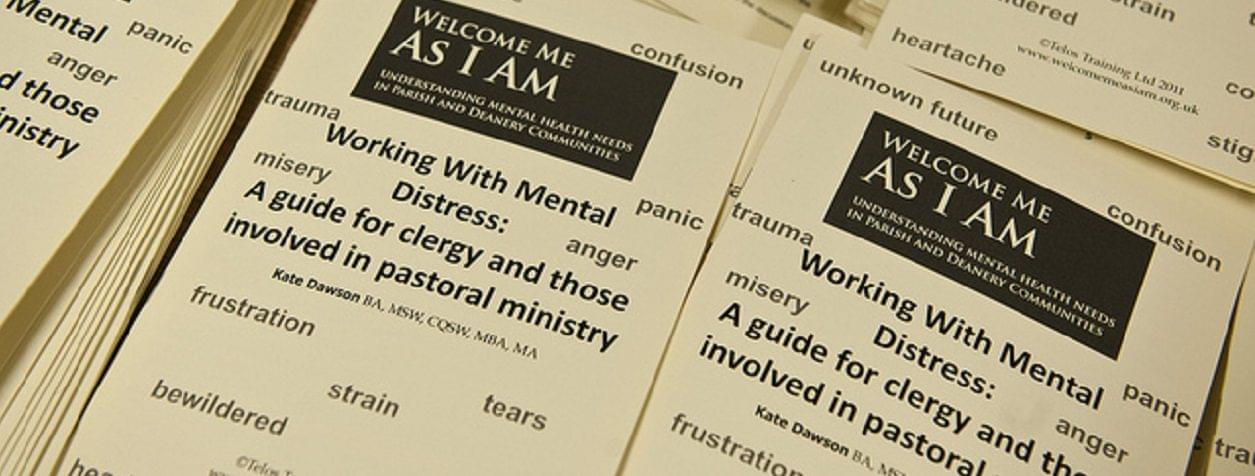By Eddie Gilmore, Chief Executive of the Irish Chaplaincy (CSAN member charity)
Our society has a tendency to view old age as a problem and the elderly as a burden on the state. Dementia tends to be seen in an especially negative light. We hear, for example, that somebody ‘suffers’ from dementia, we use words like ‘decline’, and there is often a perception that the person is somehow no longer there, or that they are almost an empty shell.
It’s all a bit more real for me these days as my dear, wonderful mum is living with dementia. Her short-term memory has got a lot worse and yet her lovely nature continues to shine through, for example in the way she speaks to the staff, “Thanks ever so much, love”. She still takes a keen interest in what’s going on around her, and about which she still makes pertinent and humorous little comments. And we still have a good laugh together, even if things get increasingly a bit mixed up in her brain. I arrived on the last day of my post-Christmas visit to find a sizeable group of the women in the dining-room in rapt attention: it was the bingo. I asked mum if she wanted to go to her room for a quiet chat. “Ah, after the bingo”, she said. She was 100% focused and there was nothing at all mixed up in her brain as she went on to win the next full house!
I came across an interesting book by John Swinton, Professor of Practical Theology and Pastoral Care at the University of Aberdeen: ‘Dementia: Living in the Memories of God’. In the Introduction, entitled ‘Being Loved for who I Am’, Swinton recalls how he was asked once, “If you ended up having dementia, how would you like to be treated?” His answer was, “I hope I will be loved and cared for just for who I am, even if who I am is difficult for me and for others.” He went on to raise the interesting point that the question of who I am is not necessarily straightforward when our brains are functioning ‘normally’, let alone when I may have forgotten who I thought I was.
In a later chapter, ‘Becoming friends of time’, Swinton speaks of the simple act of being present to another person. He tells a story entitled, ‘The sacrament of the present moment’, in which a seminary professor, John Goldingay, invited his students to come and have pancakes with him and his beloved wife Ann, who was in an advanced state of dementia. He encouraged them to speak to Ann, even if she might appear unresponsive, and he said, “She probably won’t remember you afterwards, but in that moment she will appreciate you”. That story reminded me of a visit I made recently to a lovely Galway woman who lives in a care home and who I’d seen a few times before. As I entered her room, she said to me, “I don’t know who you are but it’s very nice to see you”!
Goldingay describes his journey with Ann in his book ‘Walk on’ and writes “it can seem now as if Ann is almost gone…there is so little of her here now”. Yet, he is challenged by a caregiver who sees Ann in a different way. This person enjoyed simply sitting with Ann over the course of a year and remarked “Ann’s spirit ministers to my spirit”.
There’s a story in John Swinton’s book about another man caring for a wife with Alzheimers. This person had been a successful, and very busy, businessman, but now he devoted himself entirely to the care of his wife: feeding her, bathing her. One night she woke him and, as if emerging from a fog for a moment, said, “Darling, I just want to say thank you for all you’re doing for me”, and then she fell back into the fog.
Dementia raises interesting questions about who we are at our core, about what it means to be human, and about what makes for a ‘valued’ and ‘worthwhile’ life. It’s interesting as well to examine our assumptions that a person living with dementia is somehow in decline and suffering and going ‘downhill’. If I ask myself the question that John Swinton was asked, ‘How would I like to be treated if I had dementia’, my answer might be: with love, and with dignity and respect. But then again, it might not be too far from Swinton’s response, “loved and cared for just for who I am”. And I hope there will be people who will simply sit with me and be fully present in that moment, even if I may not remember them with my conscious mind the moment they’ve walked out the door.
This article was first published in The Catholic Times. Any views expressed are those of the author.
Picture credit – © Mazur/catholicnews.org.uk

